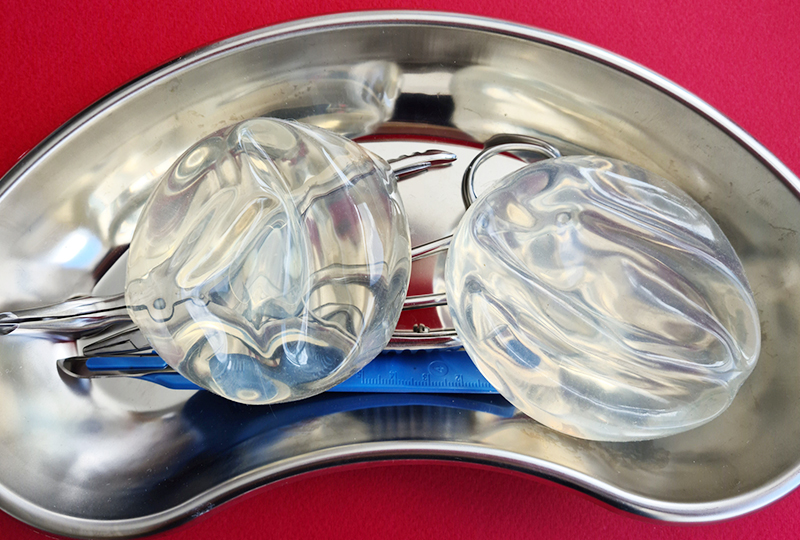People with breast implants can experience a host of symptoms known as breast implant illness.
For those with breast implants, the development of a variety of health concerns may signal a condition known as breast implant illness.
As doctors and researchers are only beginning to understand the cause of this condition, patients experiencing the wide-ranging symptoms are banding together in online support groups and across social media to share their experiences and search for answers.
“When patients come to me about breast implant illness, we have a very transparent discussion concerning the risks and benefits of removing or keeping their implant. Then, we decide together what is right for them.”
Most notably, race-car driver Danica Patrick opened up in 2022 about her experience with breast implant illness and the symptoms she lived with, including fatigue, low hormone levels and hair loss, among others.
“There are some great scientists researching the causes and treatment for breast implant illness, but overall this is a challenging condition for patients to experience and for doctors to address,” said Dr. Galen Perdikis, a plastic surgeon with Vanderbilt Health.
Varied symptoms, many mimicking other conditions
While some signs of breast implant problems reported by patients appear similar to rheumatoid arthritis or other autoimmune illnesses, different types of breast implant illness symptoms occur as well, making it difficult to pinpoint their cause.
“Even after patients undergo a gamut of tests, many are still unable to receive a definitive diagnosis,” Perdikis said. The underlying commonality among patients, however, is that they all received silicone or saline breast implants, either following a mastectomy or for cosmetic purposes.
In addition to the symptoms Patrick reported, patients with breast implant illness may also experience a host of other issues, including:
- joint and muscle pain
- memory loss and concentration problems
- rashes
- depression and anxiety
- sleep disturbances
- vision problems
- headaches
New warnings
Due to growing concerns about breast implant illness and other complications related to implants, the FDA in 2020 issued new guidelines that doctors are required to share with patients before they undergo surgery.
“In-depth discussions between doctors and patients about the most current data is very important,” Perdikis said.
Treatment options for breast implant illness
To treat their symptoms, patients may choose to have the implant removed, which itself is a surgery that poses risks such as infection, scarring and chronic pain. And, while removal offers relief for some patients, others continue to experience health concerns.
“When patients come to me about breast implant illness, we have a very transparent discussion concerning the risks and benefits of removing or keeping their implant. Then, we decide together what is right for them,” said Perdikis, adding that decisions related to implants are personal and that what is best for one person may not be best for another.

Personalized care for reconstruction
Vanderbilt Health surgeons can help you understand options for breast reconstruction, and tailor a care plan to meet your unique needs and health goals.

